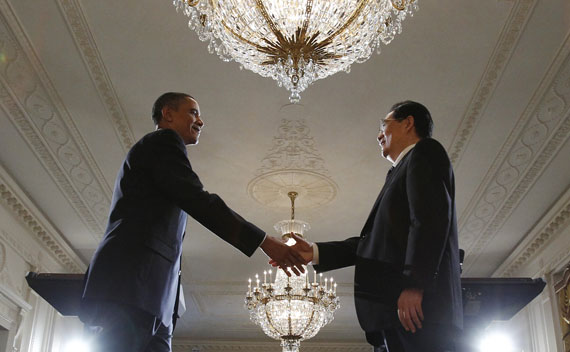Two Cheers for Technology and the Hu Visit?
More on:

I have to admit that I did not have very high expectations for concrete deliverables from President Hu Jintao’s visit to Washington. Yes, the Chinese would bring their checkbook—and here they did not disappoint, announcing a $45 billion trade deal—but they would be vague and noncommittal on just about everything else that Washington wanted: more transparency on military issues, increased pressure on North Korea, and revaluation of the renminbi. Reports suggest that there was plenty of evasiveness at Wednesday’s press conference. President Obama, for example, talked about universal values; President Hu responded with the need for "mutual respect."
But on many of the technology issues that have been major irritants to bilateral trade, the Chinese appear to have made significant concessions. Hu promised that government procurement decisions would not be based on where intellectual property was developed and that there would be no discrimination against foreign technology. The Ministry of Industry and Information Technology also said it would eliminate the indigenous innovation criteria used to decide whether a product could be part of its industrial equipment catalogue (that is, the technology does not have to be developed in China). In addition, the Chinese delegation committed to strengthening intellectual property rights protection.
The proof, of course, will be in the pudding. We will have to see if Beijing, and provincial and municipal governments in particular, follow through. And, as I have argued in Advantage and in previous posts, we shouldn’t confuse China’s desire for technological autonomy and moving up the product cycle with a narrow set of policies. The policies in question may end, only to be replaced with new efforts to foster indigenous innovation.
Yet, while technology battles may not disappear, we shouldn’t deny a good day’s work.
More on:
 Online Store
Online Store